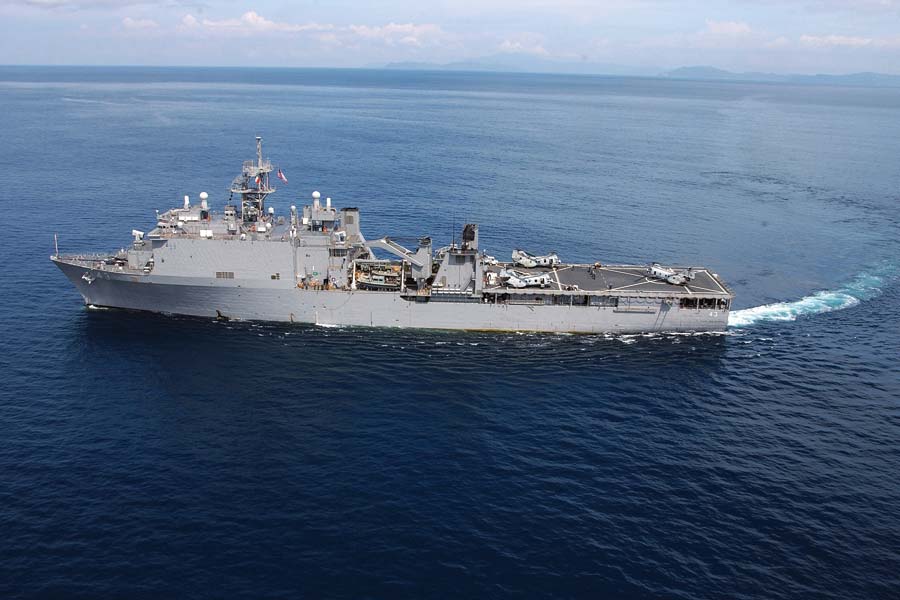Amidst the undulating waves, a cutting-edge Chinese marine research ship, the ‘Xiang Yang Hong 03’, gracefully navigated its course, reaching the vicinity of the Maldives after an extensive sojourn in the vast expanse of the Indian Ocean proximate to the island nation. This nautical arrival coincided with the ingress of Indian and Sri Lankan coast guard vessels into the strategically situated archipelago, partaking in a trilateral naval exercise.
India, voicing apprehension about the Chinese research ship’s maneuvers in the Indian Ocean, exerted diplomatic influence on Sri Lanka, urging them to withhold docking privileges at the Colombo port. ‘Xiang Yang Hong 03’ found anchorage in close proximity to Male City on this particular day. Reports from the news portal Edition.mv later revealed its presence near Thilafushi around noon, as per the Marine Traffic website, a global tracker of maritime vessels.
Embarking on its odyssey on January 14, precisely 24 hours subsequent to the conclusion of Maldives President Mohamed Muizzu’s state visit to China, ‘Xiang Yang Hong 03′ reached Male’ after a month-long sojourn within the Maldives’ Exclusive Economic Zone (EEZ), as reported by Adhadhu.com, a reputable news outlet. Remarkably, the vessel managed to evade common tracking platforms starting January 22, suggesting a deliberate cloak of invisibility. Sources alluded to a potential deactivation of the vessel’s tracking systems during its sojourn in the Java Sea, adjacent to Indonesia.
Adhadhu’s satellite AIS tracking analysis pinpointed the Chinese vessel within the EEZ of the Maldives, affirming its month-long residence in the vicinity. The pro-China stance of President Muizzu, evident from his victory in the last presidential election with an ‘anti-India’ orientation, deviated from the tradition of prioritizing New Delhi over Beijing for the first official visit.
A discerning American think-tank postulated that an extensive fleet of China’s scientific research vessels engaged in data collection from global oceans, including the Indian Ocean Region, ostensibly for military objectives, particularly submarine operations. Beijing, refuting these claims, asserted alignment with the UN Convention on Law of the Seas (UNCLOS).
On January 23, the Maldives government granted clearance to the research vessel, although affirming restrictions on research activities within Maldivian waters. Concurrently, sources within the Indian defense establishment hinted at vigilant monitoring of the vessel’s trajectory.
Come February, Chinese Foreign Ministry spokesperson Wang Wenbin underscored the peaceful intent behind China’s scientific pursuits in relevant waters, emphasizing contributions to humanity’s oceanic understanding. Contrastingly, Sri Lanka, on January 5, barred entry to the Chinese ship, declaring a year-long moratorium on foreign research vessels entering its waters, resonating India’s concerns over Chinese vessels in the regional neighborhood.
The geographical proximity of the Maldives to India, a mere 70 nautical miles from Minicoy in Lakshadweep and 300 nautical miles from the mainland’s western coast, coupled with its pivotal position along commercial sea lanes in the Indian Ocean Region (IOR), imbues it with strategic significance. The Maldives stands as a crucial maritime ally in India’s initiatives like ‘SAGAR’ (Security and Growth for All in the Region) and the ‘Neighbourhood First Policy’ under the aegis of the Narendra Modi government.
Meanwhile, in the morning hours of Thursday, Coast Guards from Maldives, India, and Sri Lanka, along with observers from Bangladesh, convened for the Trilateral Joint Exercise ‘DOSTI-16.’ The Maldives National Defence Force (MNDF) welcomed participating ships, fostering collaboration between the forces. This biennial event, slated from February 22-25, aims to bolster military synergy among the three nations and strategize collective responses to maritime incidents, as reported by the news portal Sun.mv. ‘DOSTI’ initially commenced between Maldives and India in 1991, later incorporating Sri Lanka in 2012. The last iteration occurred in 2021.
The visit of an Indian coastguard vessel to the Maldives unfolded against the backdrop of President Muizzu’s directive for the withdrawal of 88 Indian military personnel overseeing three aviation platforms in the island nation, scheduled by March 15.




